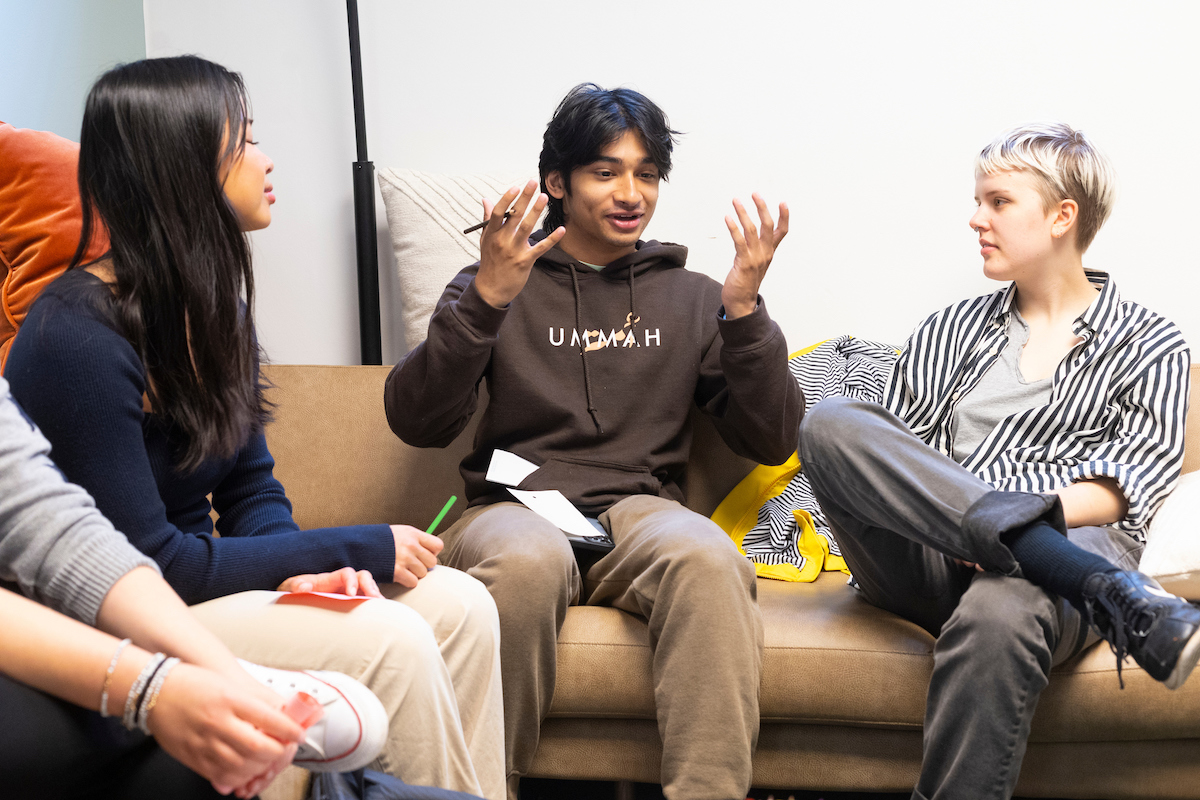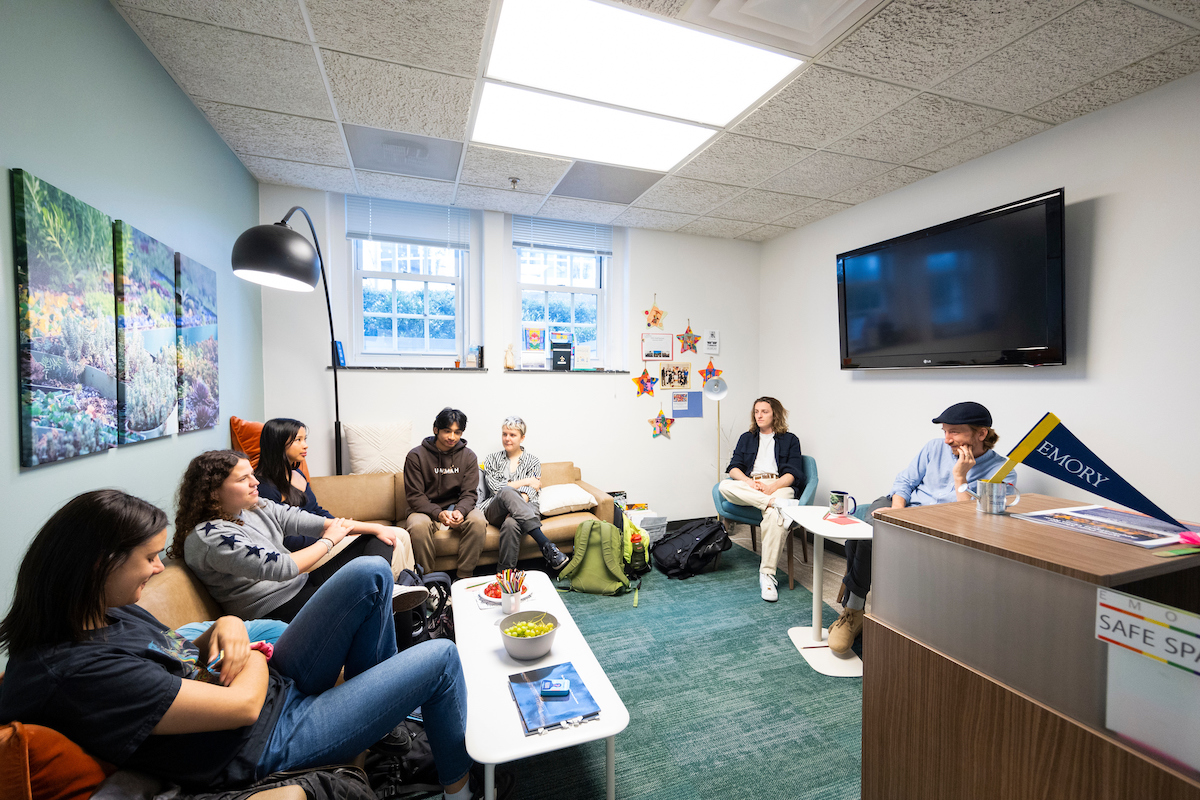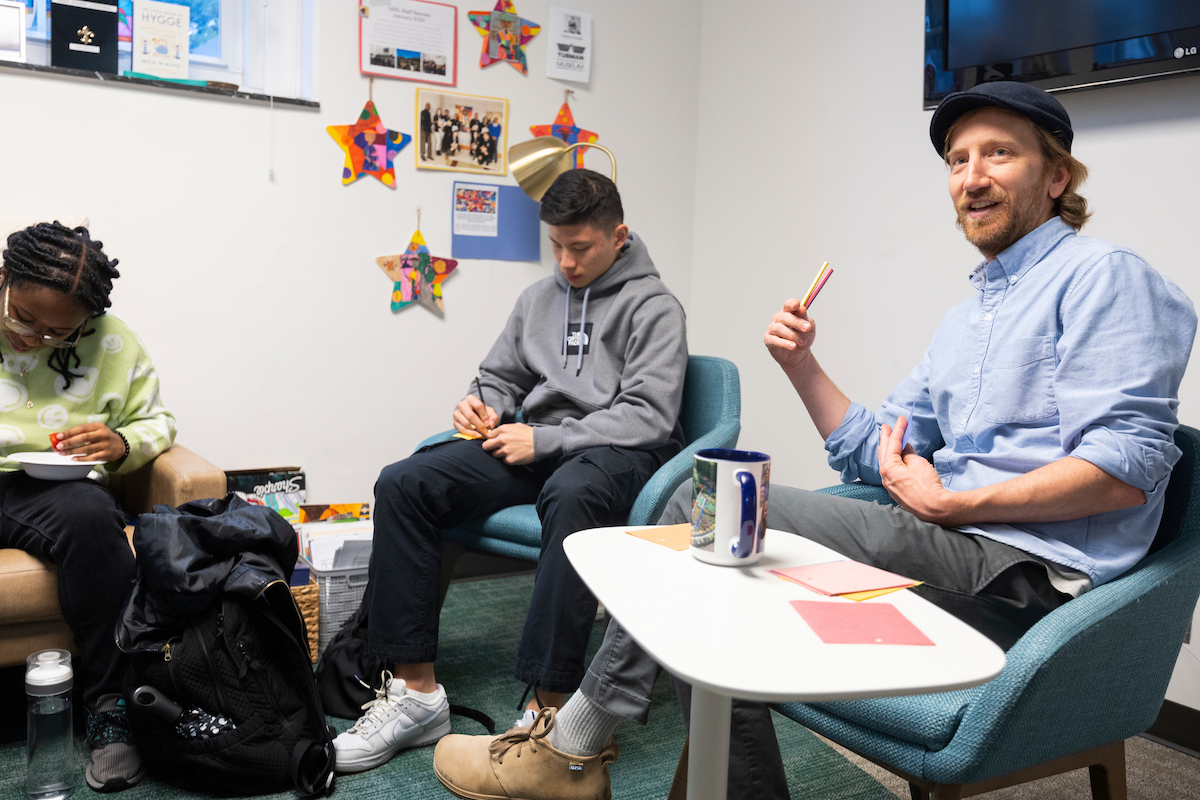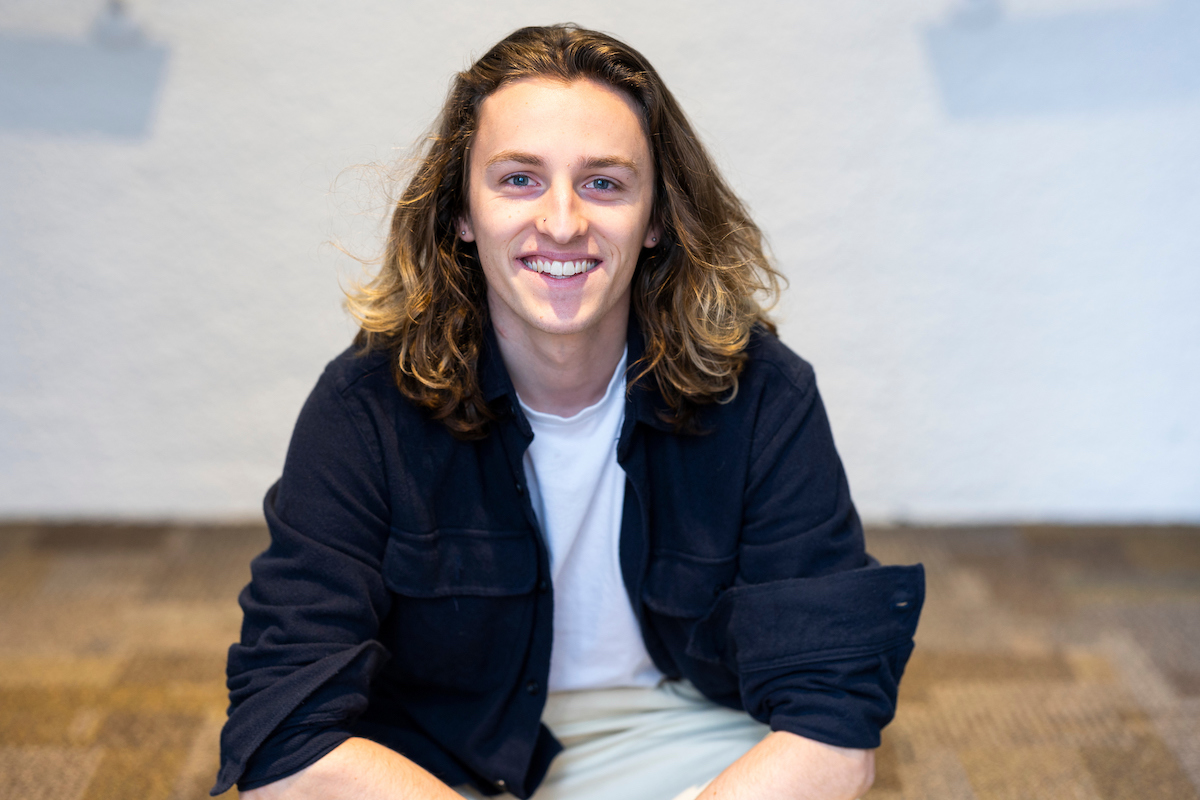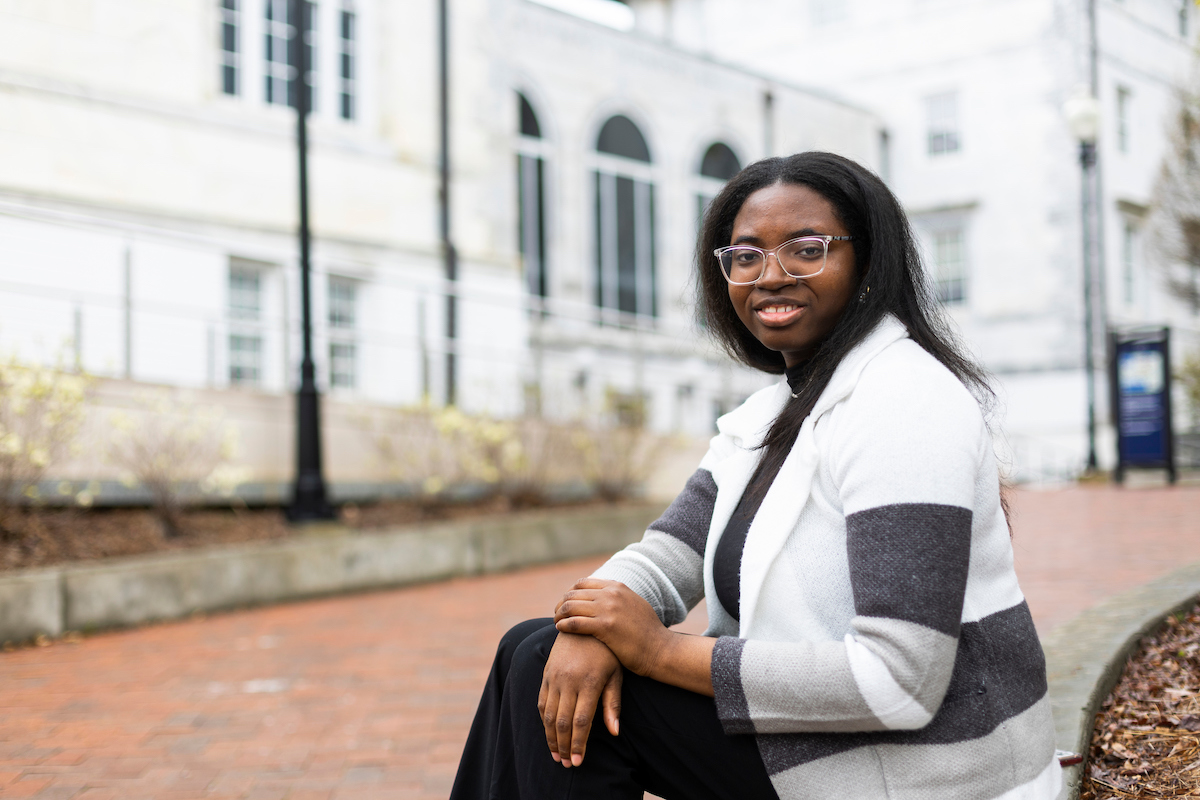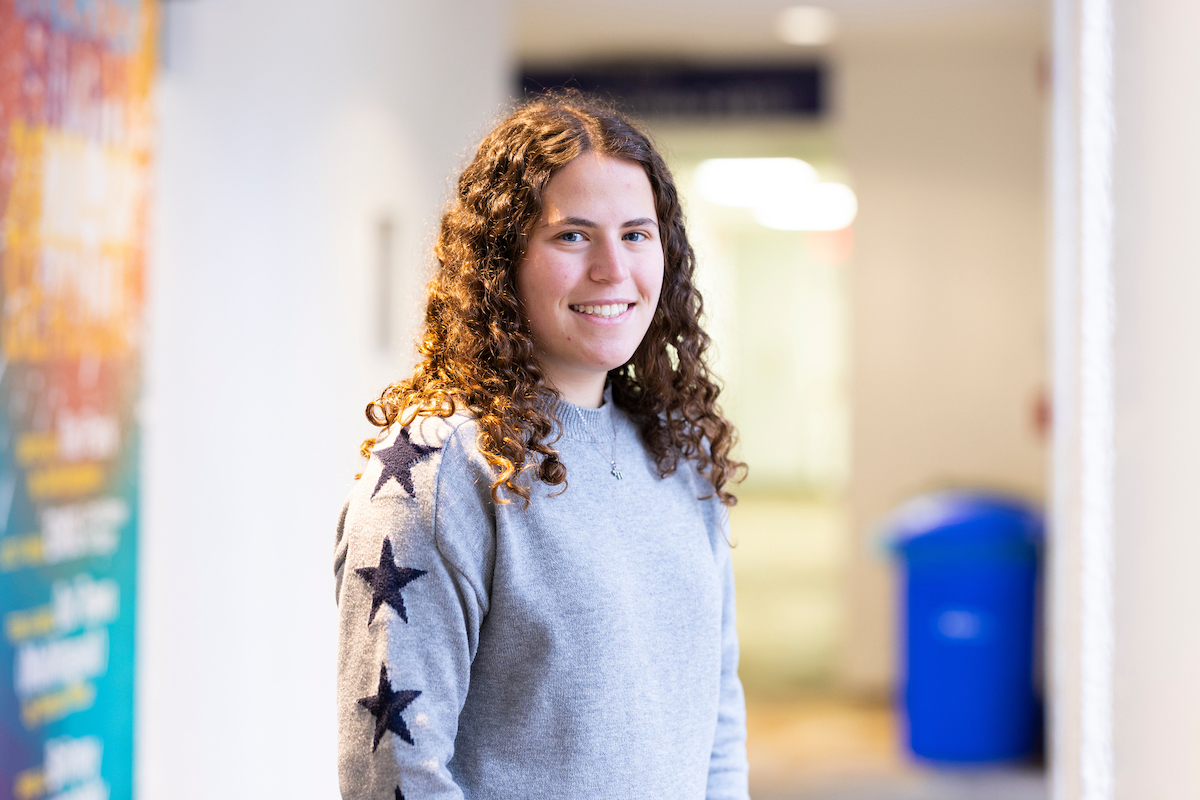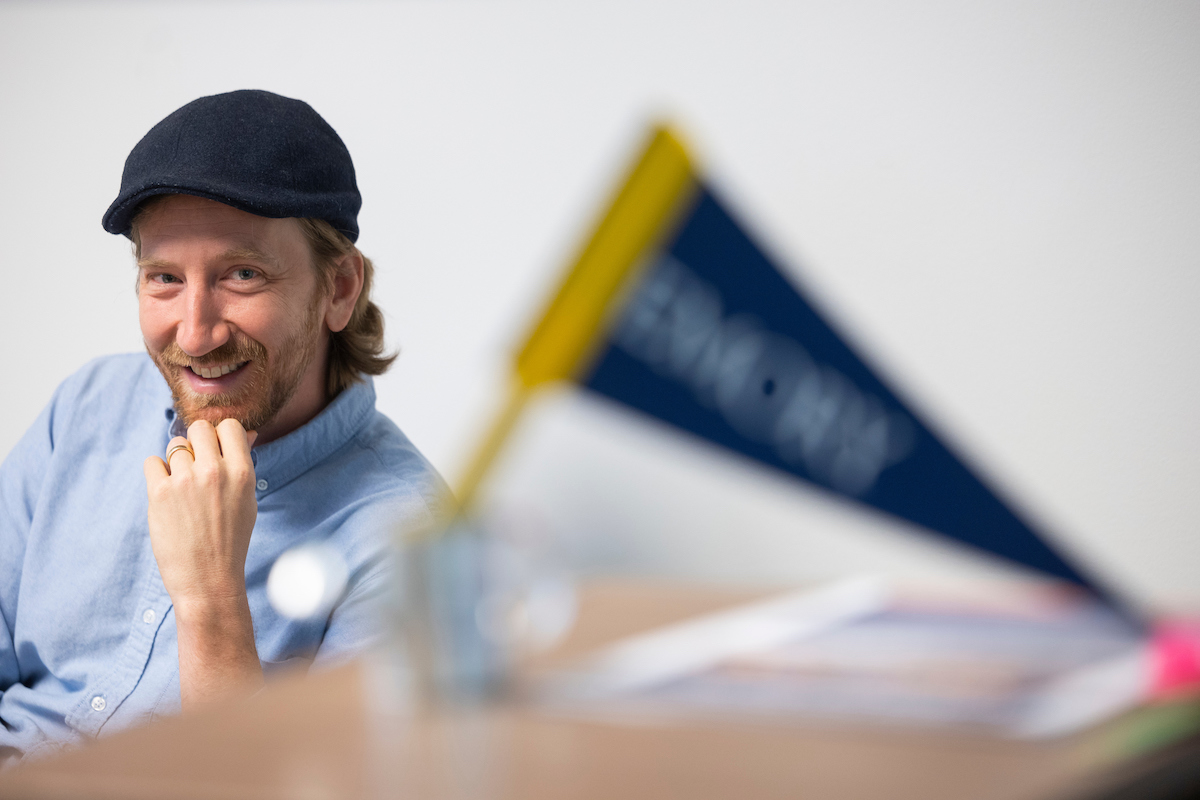Rabbi Jordan Braunig had a simple idea: Find a way to deepen connections at Emory by encouraging students of all backgrounds to go out for a cup of coffee.
However, in just one year, the Flourishing Fellows program has proven to be much more than sharing a cup of joe for the 16 participants. They have made friends, improved their listening skills and learned to see themselves and others as more than their majors and occupations.
“Particularly coming out of the pandemic, we had lost some of our natural affinity toward and ability to be with other people in the ways that we once did. In some ways, it was born out of a desire to encourage people to gather again,” says Braunig, who is Emory’s Jewish chaplain.
Numerous studies from the National Institutes of Health have shown that even though young people have several social media apps on their phones, they are feeling more disconnected than ever. Social media has been linked to increasing numbers of young people suffering from anxiety, low self-esteem and depression. Studies have also shown that connection to community has the opposite effect.
“It is completely apparent that students want interactions that are different from what they’re getting on social media. They want to be with each other, sit face-to-face, and learn about the stories of their classmates and peers, what inspires them, who they want to be in the world,” says Braunig.
The Flourishing Fellows program is sponsored by the Office of the Provost and the Office of Spiritual and Religious Life (OSRL). A core principle for OSRL is that connection with others is necessary for spiritual well-being, no matter a person’s faith or belief system.
“On campuses nationwide, there is a renewed focus on some of the things that are most important for all people to learn — how to build friendships, how to find and foster community, and how to cultivate a sense of purpose and meaning in life,” says Rev. Gregory McGonigle, dean of religious life and university chaplain.
Flourishing Fellows is also a part of the Student Flourishing Initiative, an ambitious university-wide effort to help students thrive both in and out of the classroom. A core area of the 2O36 Campaign, Student Flourishing seeks to create an integrated, transformative Emory experience through programs focused on students’ academic experience, professional pathways, purpose and meaning, and community and well-being.
“At Emory, we are interested not just in students’ professional success, but their success in life overall,” says Ravi V. Bellamkonda, provost and executive vice president for academic affairs. “That means things like being centered, having a purposeful life, being ethical, being reflective, building strong character and building meaningful relationships within one’s community. As educators, we know that the classroom accounts for only a portion of the student experience, which is why we’re taking a more holistic approach.”
Meet the fellows
The Flourishing Fellows program offers undergraduate students in all class years on the Atlanta campus the opportunity to build “resilient, inclusive and relationship-based communities on campus.” They started the program with a retreat in October to build trust.
Cole Smith, a third-year student from Los Gatos, California, says he was nervous when he first started the program. The chemistry major found himself not interacting with others as much as he did prior to the COVID-19 pandemic, and he wanted to change that.
“I was scared I was going to mess it up at first, especially since some conversations get to depths that require care,” says Smith. “I like to think I’m a better listener now. I allow for quiet and pauses to let people fill that space however they want.“
Throughout the past seven months, Flourishing Fellows have been trained in dialogue and community-building, with an emphasis on listening. As they develop their skills, a key part of the program is practicing the art of connection. Each fellow receives a stipend to have coffee for an hour with 40 students — classmates, roommates or total strangers on campus — and have conversations that go beyond “how are you?” or “what’s your major?”
For Koluchi Odiegwu, a third-year student from Atlanta pursuing a double major in comparative literature and human health, the program opened communication with her peers in unexpected ways. Odiegwu is a Nigerian American who often speaks Igbo at home, but not necessarily outside of the house.
Through the Flourishing Fellows program, she hosted a gathering with other students who speak Igbo on campus to speak to each other in their mother tongue. She says they chatted about everything from having a second culture and home to growing up with Nigerian parents. She says the experience has made her appreciate Igbo more.
“As a language, Igbo expresses intimacy and deep meaning through sound changes, which is something I had seen my parents do with their friends, but never practiced intentionally,” says Odiegwu. “Then, I did it with people at Emory, some of whom I barely knew, and it changed how I listen to the language now. I never would have done that before Flourishing Fellows.”
She also adds, “We’re encouraged to engage strangers, and that breaks some social codes. It’s not a date or flippantly using Emory money for free coffee. It’s about building authentic relationships for relationship's sake.”
Building relationships and becoming more themselves are experiences many of the fellows share. Through the program, first-year student Naomi Altman has met several people on campus who share her love of ultimate frisbee and community service. Altman was drawn to Emory because of the Goizueta Business School and knew hardly anyone on campus, but the Flourishing Fellows program has reaffirmed her choice to pursue her undergraduate education here.
“When you sit with someone for an hour with no phones, you get to know more about their experiences,” says Altman. “I can’t recommend it enough. It has been one of the most impactful experiences of my short time at Emory. It’s nice to know that you can connect and become friends with someone so quickly.”
A new cohort of fellows will begin the program in fall 2023.
Photos by Kay Hinton, Emory Photo/Video

